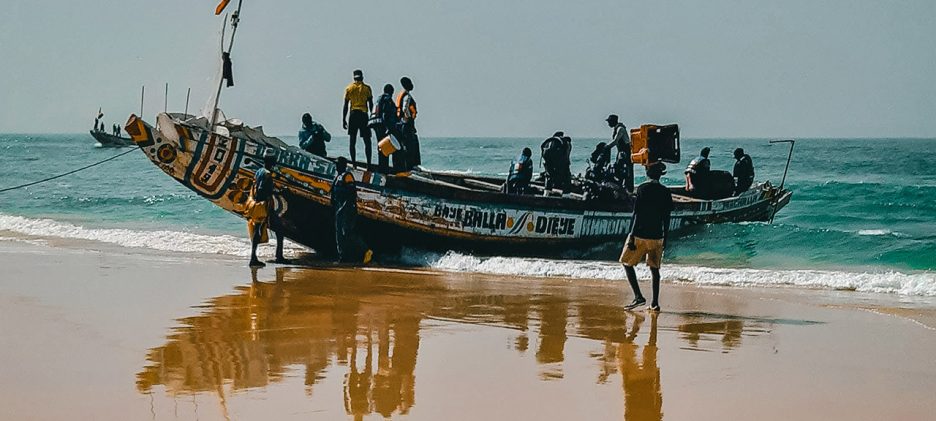Seefar is seeking an experienced Programme Manager with complete fluency in French and English for our West Africa programme. You will have demonstrated project management experience in developing countries; have thematic experience and a strong interest in migration, training and livelihoods; enjoy working in a high performing team from multiple countries; be someone donors trust; and are results focused. You can be based anywhere in the world but must be prepared to travel. This is a full-time position.
Salary: USD 6,500 to 7,900 monthly, depending on experience.
Job Description
We are a social enterprise with a mission to work with vulnerable people to build a better future. We specialise in justice, migration and social inclusion. Our expertise is in strategic communications, counselling, consulting, monitoring and evaluation, and research. We work in East Asia, South Asia, the Middle East, East Africa, North Africa, the Sahel and Europe. For more information about us, please visit http://seefar.org/about-us
To get a sense of the services we specialise in at Seefar, please visit http://seefar.org/services.
For examples of projects relevant to this position, please visit
https://seefar.org/themes/migration/
https://seefar.org/themes/displaced-people/
https://seefar.org/themes/human-trafficking-and-modern-slavery/
The role requires someone with at least five years professional experience in managing teams and implementing projects and who is smart, intrinsically motivated, worldly, interested in hard challenges and is highly flexible and efficient. The role will require English fluency and ideally French.
Responsibilities
The following are the primary responsibilities of the role, with estimated allocations of time and attention.
Deliver: Project and Mission Implementation
Approximately 70% of your time and attention:
- Recruiting, training, supervising and developing a project team in Western Africa, including Mali, Nigeria and Cote d’Ivoire.
- Fulfilling the role of Programme Manager using our internal project systems, financial and budgeting tools and processes.
- Programme development and reporting.
- Coordinating multiple projects and personnel within the programme, including projects related to migration, education and livelihoods in West Africa.
- Ensure donors’ needs are met and expectations exceeded where possible.
- Provide thematic inputs to programs relating to migration, modern slavery and livelihoods.
- Liaise with donors and partners to report on projects and manage relationships. For example, this would include briefing donors on progress and spending time talking with relevant teams in our partner organisations.
- Cooperate with other areas of Seefar, including to communicate substantive and administrative information that supports corporate management overall.
Develop: Capabilities and Program Portfolio
Approximately 30% of your time and attention:
- Develop relationships with potential donors.
- Identify possible funding streams and contribute to written proposals.
- Strengthen the Enterprise’s reputation and profile in our areas of expertise.
Working with Seefar
Current and former personnel have noted the points below as positive features of Seefar’s work environment and culture:
- The Enterprise combines entrepreneurialism with a focus on social impact.
- You work with highly diverse people and across a diversity of contexts.
- There is a high level of trust that supports you to work autonomously.
- The people in the Enterprise encourage innovation and experimentation.
- Achieving results is prioritised over rigid structures and workflows.
- You are never bored and always challenged.
Current and former personnel have noted the points below as negative features of Seefar’s work environment and culture:
- Collaborating with geographically dispersed teams requires flexibility and patience.
- Working remotely can make you feel isolated and so requires you to invest time in communication.
- Travel schedules can sometimes be heavy.
- A high-growth phase means problem-solving as the Enterprise’s systems evolve quickly.
- It can be fast paced so you need to be productive and able to prioritise effectively.
An Excellent Candidate
To excel in this role, you will have an undergraduate or postgraduate degree and at least five years experience implementing projects in developing or conflict affected countries. You will have working knowledge of themes like migration, livelihoods and modern slavery. You have strong project management skills, and complete fluency in written and spoken English and French. Your writing skills are excellent and you are confident in engaging with donors and stakeholders to ensure projects align with donor expectations. You are highly organised, have the ability to prioritise and are highly productive. You are naturally responsive and are client focussed, while also able to work autonomously. You are motivated by an Enterprise performance framework focused on social impact.
To Apply for this Role
On or before 25 July 2022, complete our online application form. Before you start, you should do the following:
- Confirm you meet these minimum requirements:
- Complete fluency in oral and written English and French, including clear and succinct writing skills.
- An undergraduate or postgraduate degree in social sciences, development, migration or similar.
- Excellent analytical skills.
- Ability to travel outside your region.
- A minimum of 5 years’ experience implementing migration or modern slavery or livelihood or related projects, preferably in developing or conflict affected countries.
- Prepare a CV in Word or PDF format. You will upload this in our online application form.
- In Word or PDF format, prepare an introductory letter that includes only the points below. You will upload this in our online application form.
- 1-2 paragraphs explaining a related project you have implemented. What was the project? What was your role? What were the project’s achievements? If it wasn’t successful, why?
- 1-2 paragraphs explaining what you have learned is a necessary attitude or approach when delivering successful projects in developing and conflict affected countries. What experiences taught you this?
